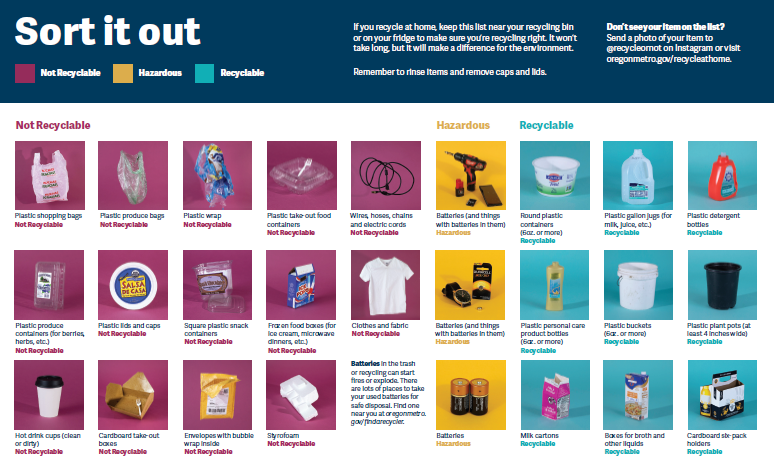Reduce and reuse
You can help reduce waste by reusing plastic bags of any kind. If you reuse them even once, you’ll end up using half as many. Keep them in a place where they’ll get reused, like your car or your kitchen.
Plastic bags and plastic wrap cannot be recycled at home. Throw them in the garbage.
Keep plastic bags of any type out of your recycling bin. The same goes for plastic wrap, which includes things like cling wrap and the packaging for toilet paper and paper towels.
The City of Portland has had a plastic bag ban since 2011 and Oregon passed a statewide ban this legislative session. That means plastic bags will no longer be available at stores throughout the state, and there will be a fee on paper bags.
Plastic bags and plastic wrap create big problems. They can end up as litter, impacting the environment. You can make a difference by reusing them or not using them in the first place.
So now is a good time to remember to bring your own bag. Pack your durable containers in reusable bags to take to the store and that can be used for years. As a bonus, many grocery stores offer a refund if you bring your own bag.
Tips to remember reusable bags:
· Return bags to your car or bike.
· Store bags near your house keys.
· Keep a small bag in a purse or backpack.
· Put a reminder on your grocery list.
Want help sorting it out?
Recycle or Not is a new community resource created by Metro and local government partners in the greater Portland, Oregon, area. These agencies are working to reduce waste and protect the environment by sharing information about how to recycle right.
Read (or listen) to this NPR story about sorting out plastics at the grocery store.




